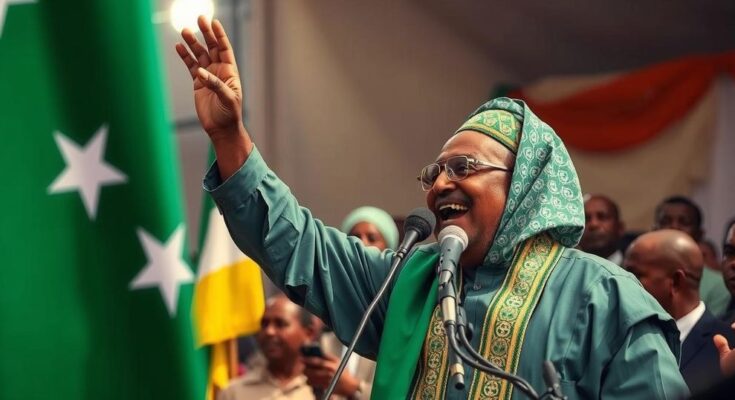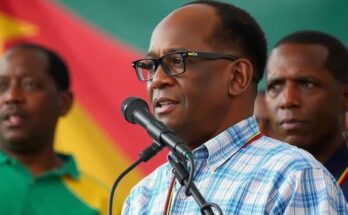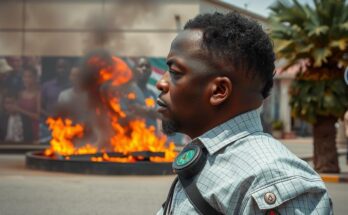Abdirahman Mohamed Abdullahi, known as Irro, wins Somaliland’s presidential election with 64% of the vote, defeating incumbent Muse Bihi Abdi. Both candidates campaigned for economic revival and international recognition. The election follows a two-year delay and marks a pivotal moment for Somaliland amid ongoing geopolitical tensions with Somalia and Ethiopia.
Abdirahman Mohamed Abdullahi, known as Irro, has emerged victorious in Somaliland’s recent presidential election, securing approximately 64 percent of the votes cast. This significant victory over incumbent President Muse Bihi Abdi, who garnered about 35 percent, underscores the electorate’s desire for change. Both candidates ran campaigns centered on rejuvenating Somaliland’s economy and advancing the region’s ongoing quest for international recognition. Notably, Somaliland declared independence from Somalia in 1991 amidst widespread conflict and has since endeavored to establish itself as a stable political entity. The recent electoral outcome, marked by voter turnout after a two-year delay, signals a pivotal moment for the breakaway region’s aspirations for legitimacy on the global stage. Somaliland has not received official recognition from any country and operates its own governmental, financial, and security structures despite ongoing geopolitical tensions, especially concerning an impending agreement with Ethiopia intended to provide the landlocked nation with access to sea routes. This arrangement is seen as controversial, triggering concerns from Somalia about sovereignty infringement. Amidst these developments, there exists optimism regarding the potential for heightened international dialogue and recognition, particularly with shifts in U.S. political views toward Somaliland. The political landscape remains complex, reflecting both potential for progress and lingering tensions over recognition and cooperation in the Horn of Africa.
Somaliland, a self-declared independent region, separated from Somalia during the country’s descent into civil war in 1991. Since then, it has managed to establish a functioning government and a semblance of stability which starkly contrasts the ongoing violence within Somalia. Despite these advancements, Somaliland has not achieved formal international recognition, which hampers its economic potential and diplomatic engagement. The recent elections illustrate the region’s democratic process and highlight the population’s aspirations for greater international legitimacy. Tensions with Somalia persist, particularly concerning strategic agreements with neighboring Ethiopia, affecting regional stability and sovereignty discussions.
The election of Abdullahi as president of Somaliland marks a significant shift in the political landscape of the region, reflecting the citizens’ aspirations for economic rejuvenation and international recognition. As Somaliland continues to navigate its unique identity amidst geopolitical complexities, the outcome signifies both challenges and opportunities ahead. The hope for external recognition remains a driving force in the region’s political discourse, particularly with evolving international relations.
Original Source: www.aljazeera.com




